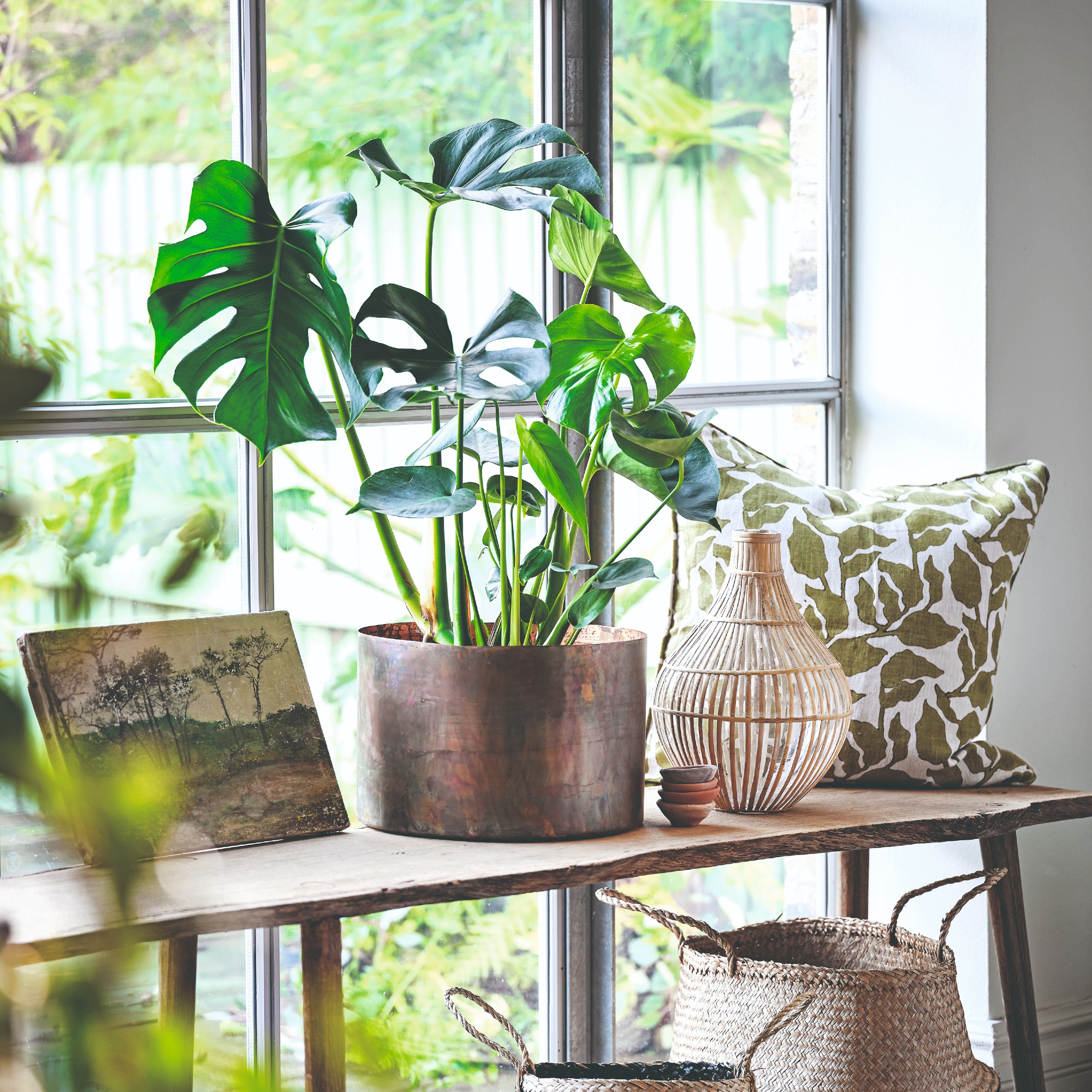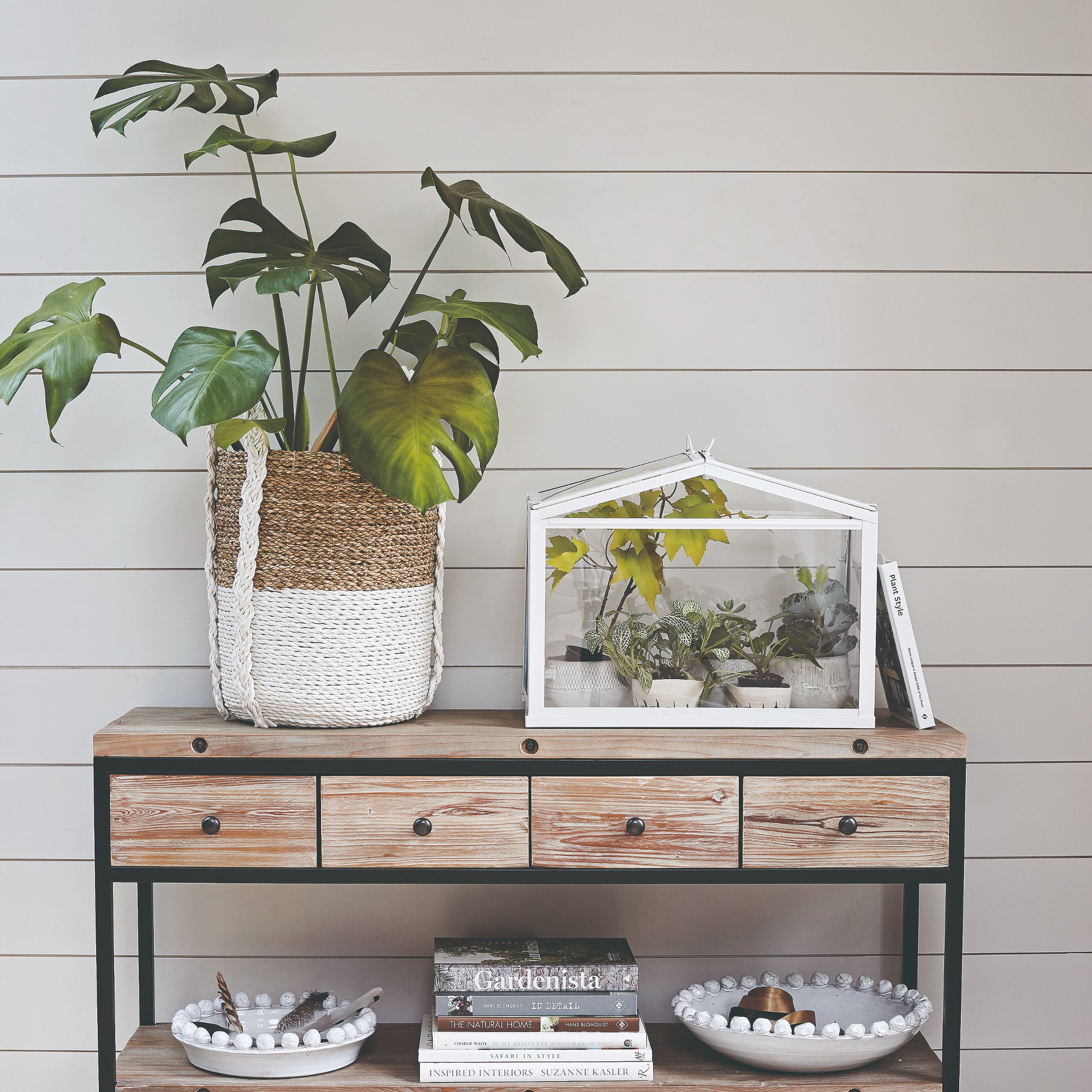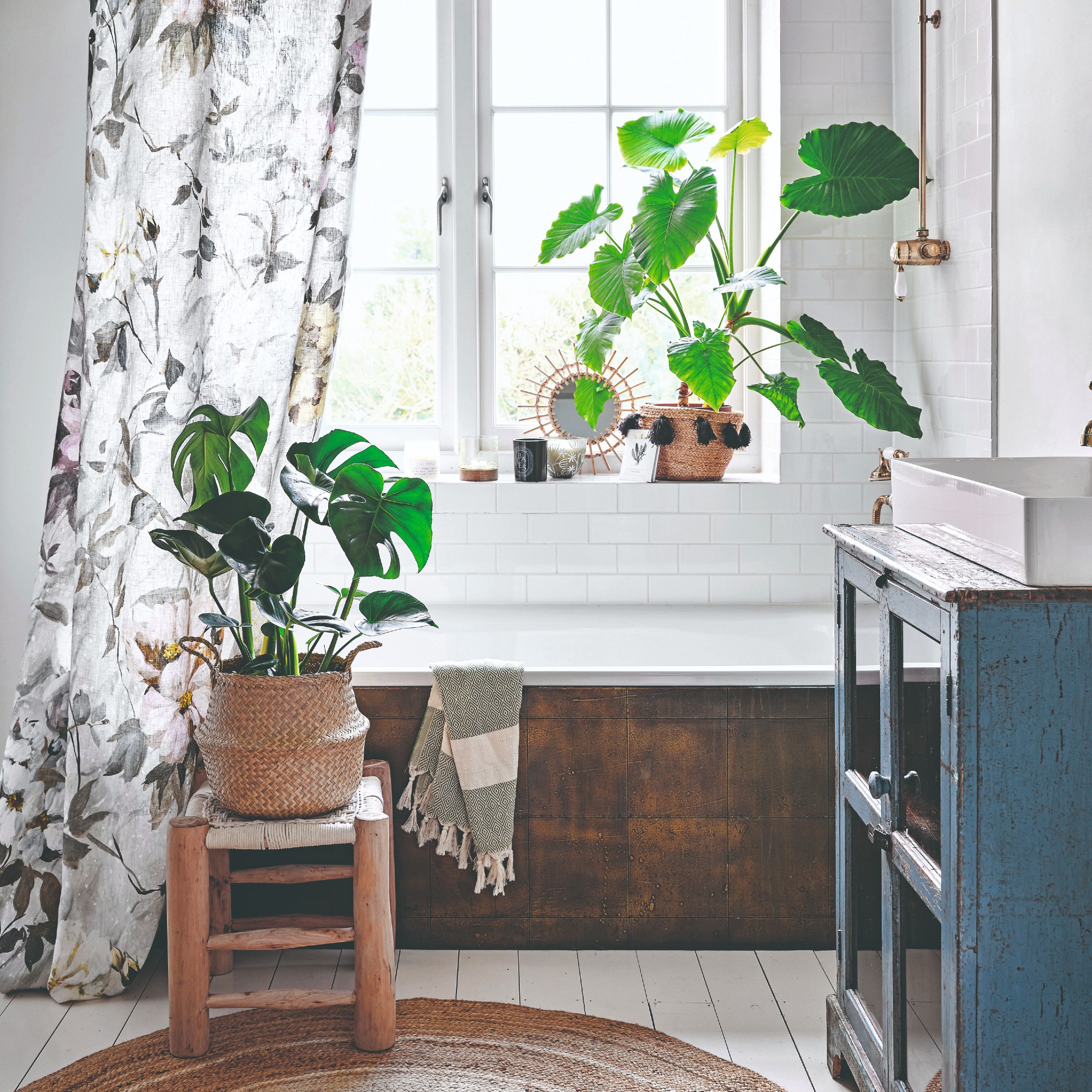
Monstera deliciosa, also known as the Swiss cheese plant, is one of the trendiest houseplants out there. It's a bold statement plant for the home, but to give it the best chance of thriving, you'll need to use the best soil for Monstera.
Swiss cheese plants are relatively easy to care for, and they're also one of the best fast-growing houseplants. Once you've figured out which soil your plant needs, learning how to care for a Monstera deliciosa is even simpler.
'The Swiss cheese plant, or Monstera deliciosa, has huge dark green glossy leaves with holes and slashes in the margin,' says Angela Slater, gardening expert at Hayes Garden World. 'It can reach a height of 20 metres in the wild, and in the home, it can grow to a height of three metres with a width of two metres, so it will eventually need a large space.'
But what's the best soil for Monstera? We've asked plant experts to let us in on the perfect recipe.
What you'll need
What is the best soil for Monstera?
There are a few key properties to look for in the best soil for Monstera plants. In a nutshell, you'll need a nutrient-rich mix that retains moisture but doesn't hold onto enough water to drench your plants.
'The best potting soil for Monstera plants is well-draining, rich in organic matter, and has a good balance of moisture retention and aeration,' says Jo Lambell, founder of Beards & Daisies and author of The Unkillables.
The reason behind this? You'll want to match the potting soil with the plant's natural environment as closely as possible. 'Monstera plants thrive in a mix that mimics their natural habitat, which is the tropical forest floor where the soil is loose and full of decomposing plant material,' Jo explains.

What is the best soil for Monstera made of?
So, what goes into the best soil for Swiss cheese plants?
'The best potting soil for Monstera typically includes a mix of peat or coco coir which offers good drainage but also retains moisture,' says Elise Harlock from Prestige Flowers. 'Perlite and pumice improve aeration, and pine bark and orchid bark add texture and help drainage.'
There are also a few ways you can enrich the soil with organic matter. 'Adding compost and worm castings to the soil mix provides essential nutrients for healthy growth,' Elise adds.
Want a list of ingredients to make your own soil mix? Here's Jo's recipe:
- 2 parts peat moss or coconut coir – for moisture retention
- 1 part perlite or pumice – for aeration and drainage
- 1 part orchid bark or coarse sand – to mimic the chunky texture of forest soil
- 1 part compost or worm castings – for added nutrients

Or, you could buy a ready-made mix like the Beards & Daisies Potting Soil which is designed to be well-draining, provide aeration and support healthy root growth.
FAQs
Do Monstera plants like deep pots?
The short answer is yes – your Monstera plant will appreciate as much room as you can spare.
'They do well in deep pots because they have a substantial root system that benefits from the extra space to grow,' says Jo from Beards & Daisies. 'Deep pots also help to accommodate the plant's aerial roots, which can extend into the soil. However, make sure the pot has good drainage to prevent water from accumulating at the bottom.'
What is the best potting mix for a Monstera cutting?
We've covered the best soil for mature Monstera plants, but what if you've just learned how to propagate Monstera and you're trying to grow new plants from cuttings?
Similar principles apply, but you'll want to aim for extra aeration. 'For Monstera cuttings, it is essential to have a lightweight mix that supports root development,' says Elise from Prestige Flowers. 'I’d suggest two parts perlite or pumice as the aeration qualities would help prevent root rot.
'Then, one part of peat moss or coco coir would provide necessary moisture retention. A little bit of charcoal can keep the mix fresh and prevent fungal growth.'
Remember to keep your potting mix moist to help the cuttings root, but to avoid root rot, make sure you aren't waterlogging them.
Can I use multi-purpose compost for Monstera?
What if you've got some spare multi-purpose compost to hand?
'While you can use multi-purpose compost, it’s not ideal on its own because it might retain too much moisture and become compacted, leading to poor aeration and potential root rot,' advises Jo from Beards & Daisies. 'If you choose to use multi-purpose compost, it’s best to mix it with perlite, orchid bark, or coarse sand to improve drainage and aeration.'
Checking that your potting mix has plenty of drainage, aeration and organic matter will ensure you have the best soil for Monstera, spelling healthy growth for your plants.







